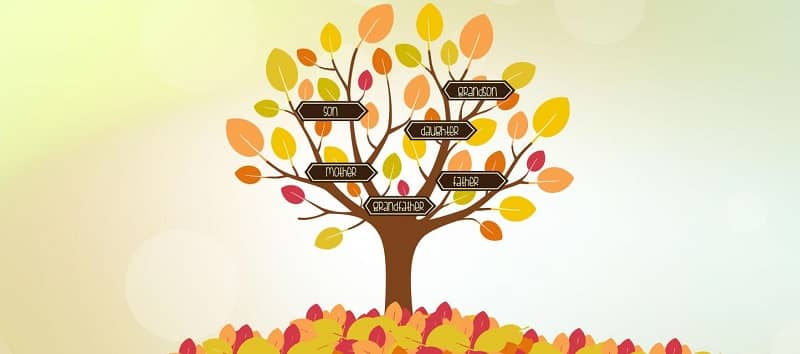Thanksgiving is coming up, and there is a good chance that you will have the rare opportunity to visit with extended family for a few hours. Whether you are gathering around the dinner table or Zoom this year, now is a great time to have a conversation with your loved ones about your family health history.
Your family medical history is one of the most critical tools we have in understanding the health risks for you and your family. This important information is often kept only in the memories of your relatives and fades a little bit with every generation. Case in point: you probably have a good idea of your own health history and that of your parents and siblings. But how about your grandparents and their siblings? Is that history a bit murky? Exactly. And when family elders pass, this precious family history too often passes with them.
Since 2004, the U.S. Surgeon General has declared Thanksgiving to be National Family (Health) History Day. To help you collect your health history, the Surgeon General’s office developed a free online tool called My Family Health Portrait. The tool helps you organize your family health information, update it whenever you learn something new, and easily share that information with your family members and health care professionals, who can then help determine whether you are at higher risk for certain diseases. A PDF version of My Family Health Portrait can be found here.
Here are some tips for starting the conversation:
Get the Kids Involved
Will there be kids at your Thanksgiving celebration? Rather than having them bug you for three hours about when the turkey will be ready, put them to work! Have them interview every member of the family and put together a detailed family history. Limit screen time, and do it the old fashioned way – take pen to paper and record a pedigree.
Gather the Right Information
Record names and dates of birth for each family member, illnesses and conditions (e.g., cancer, high blood pressure), and the ages they developed each. Document ethnic background (e.g., Italian, Jamaican, Ashkenazi Jewish) for each branch of the family. For deceased family members, record approximate causes and ages of death and any chronic illnesses (e.g., diabetes diagnosed at age 55, died of a heart attack at age 70).
Give a Heads Up
When you call Aunt Millie or Grandpa Joe to tell them what time to arrive on Thursday, give them a heads up that you will be doing a family history project this year. This will allow them to study their personal records in advance, if need be, and come prepared. And don’t be discouraged if people can’t remember exact ages of diagnosis or death. Even an estimate (breast cancer diagnosed ~70s) can be extremely helpful.
Now that You Know – Act
When the family history is complete, circulate a copy to the family, and keep a hard copy with your important documents and an electronic copy with your saved files. Bring this history to your next medical appointment. Discuss the health problems that seem to run in your family. Even if incomplete, share what you know. This information can help your doctor decide which screening tests you need and when those tests should start.
This year, don’t just rely on the Thanksgiving wishbone for a year of good health for you and your family. Start the conversation and document your own family health history to help ensure a longer, healthier future together.

